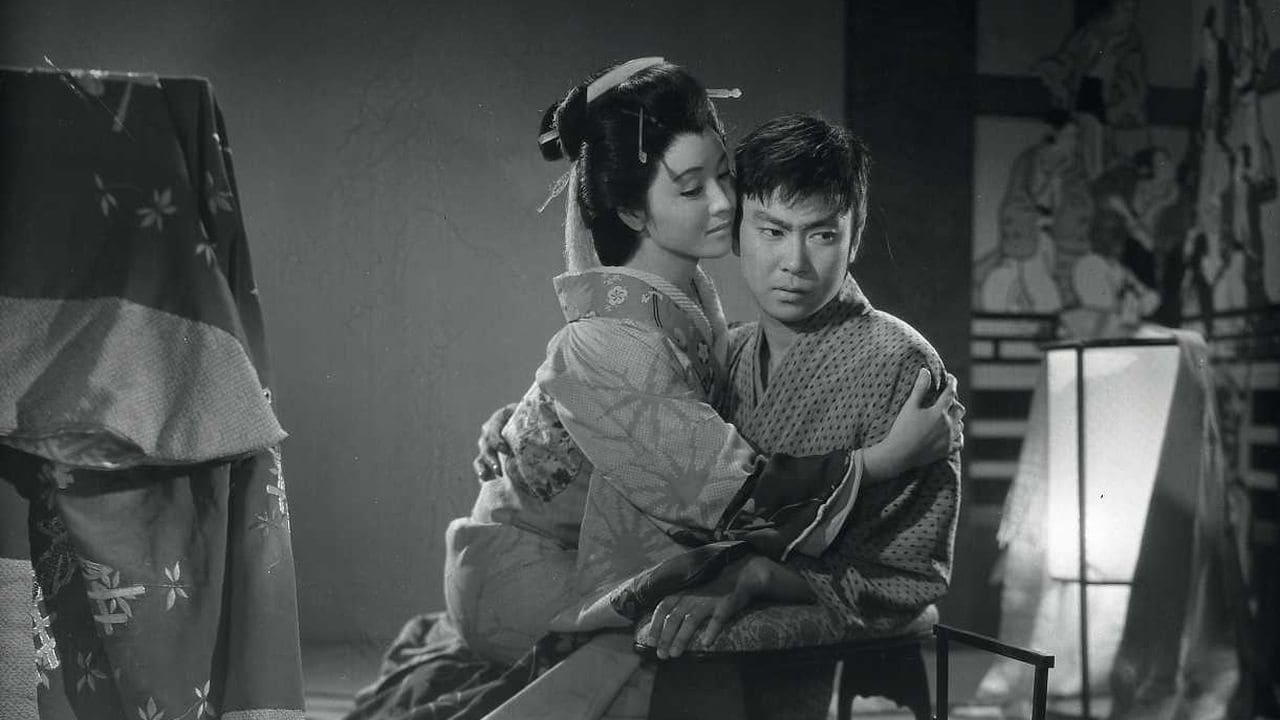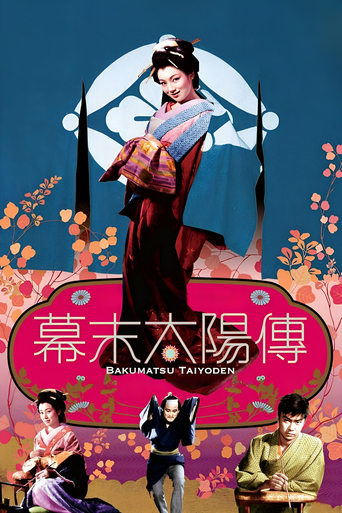

I have rarely had so toweringly high expectations for a film as I had for Kawashima Yûzô's "Bakumatsu taiyôden" (1957). So high that I knew this wouldn't be a good thing unless I exerted to utmost patience. Most often great films loaded with too much (false, misguided) expectation from the part of this particular viewer tend to disappoint on first viewing and only grow in the mind to be fully appreciated later, sometimes years after.But what a hoot this film is! The first expository reel where Kawashima puts all the plates spinning is breathtakingly relentless. Doing comedy right so it's funny enough but doesn't lose steam is as difficult as it gets. The best comedy, in my mind, injects the whole world and how that world functions with a sense of the askew, after which basically anything can happen, even when on face value what is seen appears "normal". The comedy then arises spontaneously as the characters interact with the world, the narrative sometimes ebbing towards drama, sometimes flowing towards bursts of comedy.This ebb and flow is acutely present in the film. It's a riotously funny film in dialogue, gesture and movement, and it has a free-flowing spirit. But why it works for me as well as it does is because it's full of fleshed out characters, much like Yamanaka's "Ninjô kami fûsen" (1938), which not only makes the comedy more bittersweet, but also gives it gravity. Not "gravity" in the sense of 'seriousness or solemnity of manner', really, but more like a central point from which it gushes. "Gravity" in the sense of purpose and home. For me the most effective form of comedy is the one that allows the viewer to see oneself in the characters' stead. It's us whom things are done to, and who get to experience that catharsis that might or might not come. I haven't seen any other films by Kawashima so I can't credit him as much as he probably deserves, but this sense of humanity is strong in Imamura's films, and it's here, too. It might sound like the mother of clichés (which in itself sounds awfully soppy) but when one cares about the characters, their comings and goings don't have to amount to much for the viewer to like and relate them, no matter how different in likeness, manner, ambition. In short, these characters feel like real people who are playing in constant role-play.Of course it helps how cunningly Kawashima connects all this to then-modern times. The narrator towards the beginning says the film is not about modern Shinagawa and the changes to prostitution, then proceeding to tell us what we need to know about the period (it's set in the second year of the Bunkyu Era, in 1862, six years before the fall of the Shogun) but then keeps reminding us of the parallels constantly (Imamura's "Buta to gunkan", 1961, actually plays a similarly delicious game of irony with us in its opening credits). Kawashima even had in mind to have Frankie Sakai's Inokori, or the Grifter, to not only escape down the road in the very end, but to burst out of the studio. Without going to such lengths, the point is still very well taken. Kawashima uses visuals counterpoint (marching procession/praying to Buddha; "beautiful sea view"/dead dog in the water, people dumping their trash at the docks) to absolutely great effect.There's a very interesting remark made by Fujimoto Giichi concerning Kawashima's working methods, quoted by Frederick Veith in the essay "Bakumatsu taiyô-den" (available in the booklet of the Region B Blu-ray released in the Masters of Cinema series): "First he would visualize everyone's movements in the film by drawing lines on a plan of the set. Only then did he think about their characters and situation. But it was more important to him to determine what kind of places people were moving in and out of, rather than what they actually did in them." I think you can see this in the film, and it's very enjoyable. I've now seen this twice, spending some time with this notion the second time.At this writing there are only 143 votes for this film. Hopefully people get to see this now that it's available in a handsome edition.
... View More